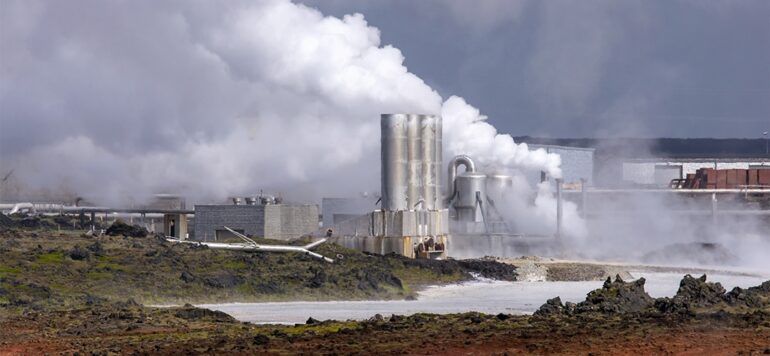TL;DR:
- Artificial Intelligence (AI) is driving advancements in geothermal energy.
- AI optimizes exploration, reducing the time and costs associated with identifying suitable drilling sites.
- AI-powered software enhances drilling efficiency, minimizing financial risks.
- Geothermal power plant management benefits from AI predictive maintenance, reducing downtime and maintenance costs.
- AI optimizes energy production processes, improving overall efficiency and output.
Main AI News:
The rapid advancement of Artificial Intelligence (AI) has brought about transformative changes in various sectors, and the energy industry is no exception. Geothermal energy, a renewable source with immense potential for reducing greenhouse gas emissions and mitigating climate change, is benefitting from AI’s catalytic influence. Through the utilization of AI technologies, researchers and professionals within the industry are discovering innovative approaches to optimizing geothermal energy production, lowering costs, and enhancing overall efficiency.
Geothermal energy harnesses the Earth’s natural heat, stored in underground reservoirs of hot water and steam. This energy can be accessed by drilling deep wells and utilizing the heat to generate electricity. Despite its utilization for several decades, geothermal energy has encountered obstacles such as high upfront costs, complex exploration procedures, and limited availability of suitable sites. However, AI is now playing a pivotal role in overcoming these challenges, unlocking the full potential of geothermal energy.
A prominent application of AI in geothermal energy lies in the exploration and identification of suitable drilling sites. Traditionally, this process has been time-consuming and expensive, requiring the collection and analysis of vast geological data to locate underground heat reservoirs. By employing AI algorithms, particularly machine learning models, this process can be streamlined. These models rapidly analyze extensive datasets, identifying patterns that signify the presence of geothermal resources. Consequently, exploration time and costs are significantly reduced, increasing the likelihood of discovering viable sites for geothermal energy production.
AI also contributes to optimizing the drilling process itself. Drilling deep wells is a complex and costly endeavor, with inefficiencies or errors resulting in substantial financial losses. AI-powered software can analyze real-time drilling data, detecting potential issues and offering recommendations for optimal drilling parameters, including speed, pressure, and trajectory. This ensures the drilling process is as efficient and cost-effective as possible, minimizing the risk of complications.
Furthermore, AI is revolutionizing the management and maintenance of geothermal power plants. These facilities face operational challenges such as equipment deterioration, corrosion, and mineral scaling, which can lead to reduced efficiency and expensive failures. Predictive maintenance systems, empowered by AI, can analyze data from sensors placed throughout the facility, identifying early warning signs of potential problems. This enables plant operators to address issues proactively, minimizing downtime and reducing maintenance costs.
AI’s impact also extends to optimizing the energy production process itself. By analyzing data from geothermal power plants, AI algorithms identify patterns and trends that can be utilized to fine-tune facility operations. This includes adjusting the flow rates of geothermal fluids, optimizing heat exchanger usage, and managing the balance between electricity production and heat extraction. These optimizations yield significant improvements in overall efficiency and energy output.
Conclusion:
The integration of Artificial Intelligence in the geothermal energy sector brings significant benefits. It streamlines exploration, lowers costs, and increases the likelihood of finding suitable drilling sites. The use of AI-powered software optimizes drilling operations, reducing financial risks. AI’s contribution to predictive maintenance enhances geothermal power plant management, minimizing downtime and reducing maintenance costs. Furthermore, AI optimizes energy production processes, improving overall efficiency and output. These advancements in geothermal energy, driven by AI, present lucrative opportunities for the market, promoting sustainable energy solutions and addressing the challenges of climate change.

